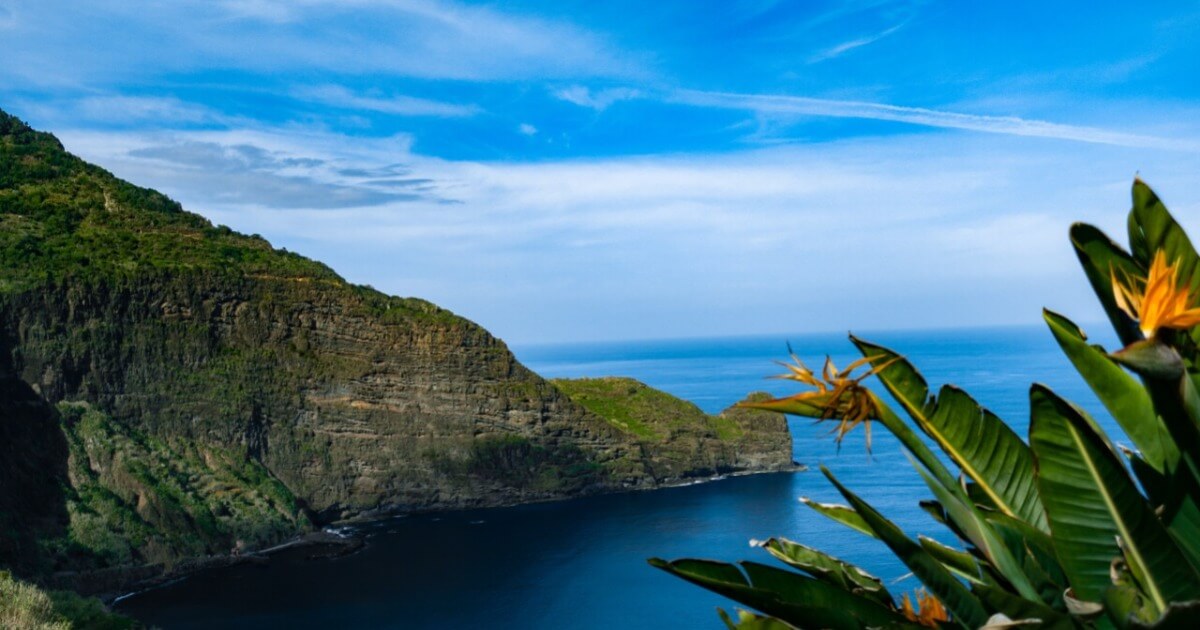Madeira is a stunning archipelago known for its year-round spring-like weather, picturesque landscapes, and warm, friendly locals. As an autonomous region of Portugal, Madeira is gaining popularity among expats and digital nomads who wish to enjoy a high quality of life in a beautiful setting. One of the key aspects that attract people to relocate to Madeira is the cost of living. In this comprehensive guide, we will delve into the details of the cost of living in Madeira, considering various aspects such as housing, transportation, utilities, and more.
Overview of Madeira
Geography
Madeira is an archipelago in the North Atlantic Ocean, southwest of mainland Portugal. It consists of two main inhabited islands, Madeira and Porto Santo, along with several smaller uninhabited islands. With its unique geographical location, Madeira is closer to Northern Africa than to mainland Portugal. It is approximately 400 km (249 miles) from the Canary Islands, 800 km (497 miles) from Africa, and 1,200 km (746 miles) from Lisbon.
Climate
The climate of Madeira is characterized by its pleasant, spring-like weather throughout the year. The temperatures range between 17°C (62.6°F) and 24°C (75.2°F) during the summer, spring, and fall seasons, while winter months see temperatures between 14°C (57.2°F) and 20°C (68°F). The island boasts up to 3300 hours of sunshine per year, which is 70% more than what is found in Northern Europe.
Language and Culture
As a Portuguese autonomous region, the official language spoken in Madeira is Portuguese. However, due to its long history as a tourist destination, English is widely spoken throughout the island, particularly in the capital city of Funchal.
The culture of Madeira is a blend of European and African influences, with a plethora of museums, art exhibitions, music festivals, and traditional folk celebrations taking place year-round.
Housing in Madeira
Real Estate Market
The real estate market in Madeira has been experiencing steady growth in recent years, offering a range of investment opportunities for those looking to relocate to the island. Property prices in Madeira are generally lower than those in mainland Portugal, with Funchal, the island’s capital, being the most sought-after location for real estate investments.
In Funchal, the median value of rents for new leases of family accommodation stands at €5.15/m², higher than the national average of €4.39/m². The median housing price in Madeira is €1,203/m², placing it among the top three regions in Portugal, behind the Algarve (€1,500/m²) and the Lisbon Metropolitan Area (€1,318/m²).
Types of Properties
Madeira offers a diverse selection of properties, from modern apartments and villas to traditional Madeiran Quintas (manorial houses). Properties in Funchal are generally more expensive due to their prime location and high demand. Still, more affordable options can be found in the surrounding municipalities of Santa Cruz, Camara de Lobos, and Machico.
For those looking for a unique investment opportunity, bespoke modern villas and traditional Quintas are available for sale. Bespoke villas usually require an initial investment of at least €350,000, while Quintas can cost upwards of €1 million.
Renting vs Buying
When considering the cost of living in Madeira, it’s essential to weigh the pros and cons of renting versus buying a property. Renting can provide flexibility and lower upfront costs, but owning a property can be a sound long-term investment, particularly if you plan to live on the island for an extended period or generate rental income from your property.
Utilities
Utility costs in Madeira are generally lower than those in mainland Portugal. Electricity prices are up to 21.8% lower than in the Algarve, and internet costs are 11.2% less expensive. The island also has a lower VAT rate than the mainland, making certain goods and services more affordable.
Transportation
Infrastructure
Madeira boasts an excellent road system, funded by the European Union, connecting all parts of the island through a network of fast roads and tunnels. The most convenient means of transportation in Madeira are by car or bus.
Public Transport
The public transport system in Madeira is reliable and affordable, with buses being the primary mode of transportation for locals and tourists alike. While owning a car can provide greater flexibility, using public transport is a cost-effective option for those looking to minimize their living expenses.
Food and Groceries
Grocery prices in Madeira are generally lower than those in mainland Portugal, with fruits and wine costing three or four times less than their European counterparts. Shopping at local markets and following the locals’ lead can help you find the best deals on fresh produce and other household essentials.
Healthcare
Madeira has a well-developed healthcare system, with public and private healthcare providers available. The public healthcare system is generally accessible and affordable, but some expats may prefer to use private healthcare providers for a higher standard of care or quicker access to specialists. Private health insurance can be a valuable investment for those looking to minimize healthcare costs in Madeira.
Education
Madeira has a range of educational institutions, including public schools, private schools, and international schools. The cost of education in Madeira is generally lower than in mainland Portugal, with public schools offering free education to all residents. International schools and private institutions may have higher fees, but they can provide an excellent standard of education tailored to the needs of expat families.
Entertainment and Leisure
Madeira offers a diverse range of entertainment and leisure activities, from museums and art galleries to music festivals and sporting events. The cost of entertainment in Madeira is generally lower than in mainland Portugal, making it an attractive destination for those who enjoy an active social life.
Expat Community
Madeira has a thriving expat community, with many residents hailing from the UK, Germany, Austria, France, Scandinavia, Canada, and the US. Expats can find support and friendship through various organizations and clubs, helping them to adapt to their new life in Madeira.
Tax Benefits for Expats
Expats relocating to Madeira can benefit from the Non-Habitual Resident (NHR) tax regime, which offers a 10-year tax holiday on foreign income. This incentive can significantly reduce the cost of living in Madeira for eligible individuals.
Conclusion
With affordable housing, utilities, transportation options, and a range of leisure and cultural activities, Madeira offers a unique island lifestyle with a European flavour. The cost of living in Madeira is generally lower than that of mainland Portugal, making it an attractive destination for expats seeking a high quality of life in a beautiful setting. By taking advantage of available tax benefits and carefully considering your needs and preferences, you can enjoy an affordable and fulfilling life in Madeira.
Get the latest about the cost of living in Madeira island in 2025.

Miguel Pinto-Correia holds a Master Degree in International Economics and European Studies from ISEG – Lisbon School of Economics & Management and a Bachelor Degree in Economics from Nova School of Business and Economics. He is a permanent member of the Order of the Economists (Ordem dos Economistas)… Read more




